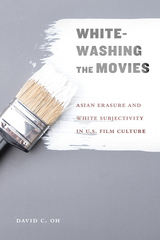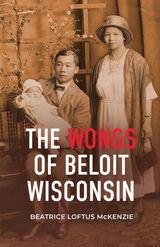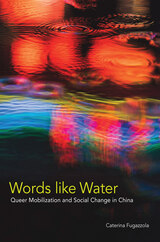142 books about Asian Studies and 5
start with W
142 books about Asian Studies and 5
142 books about Asian Studies
5 start with W start with W
5 start with W start with W

Waiting for the Cool Moon
Anti-imperialist Struggles in the Heart of Japan's Empire
Wendy Matsumura
Duke University Press, 2024
In Waiting for the Cool Moon Wendy Matsumura interrogates the erasure of colonial violence at the heart of Japanese nation-state formation. She critiques Japan studies’ role in this effacement and contends that the field must engage with anti-Blackness and anti-Indigeneity as the grounds on which to understand imperialism, colonialism, fascism, and other forces that shape national consciousness. Drawing on Black radical thinkers’ critique of the erasure of the Middle Passage in universalizing theories of modernity’s imbrication with fascism, Matsumura traces the consequences of the Japanese empire’s categorization of people as human and less-than-human as manifested in the 1920s and 1930s, and the struggles of racialized and colonized people against imperialist violence. She treats the archives safeguarded by racialized, colonized women throughout the empire as traces of these struggles, including the work they performed to keep certain stories out of view. Matsumura demonstrates that tracing colonial sensibility and struggle is central to grappling with their enduring consequences for the present.
[more]

When Death Falls Apart
Making and Unmaking the Necromaterial Traditions of Contemporary Japan
Hannah Gould
University of Chicago Press, 2023
Through an ethnographic study inside Japan’s Buddhist goods industry, this book establishes a method for understanding change in death ritual through attention to the dynamic lifecourse of necromaterials.
Deep in the Fukuyama mountainside, “the grave of the graves” (o-haka no haka) houses acres of unwanted headstones—the material remains of Japan’s discarded death rites. In the past, the Japanese dead became venerated ancestors through sustained ritual offerings at graves and at butsudan, Buddhist altars installed inside the home. But in twenty-first-century Japan, this intergenerational system of care is rapidly collapsing.
In noisy carpentry studios, flashy funeral-goods showrooms, neglected cemeteries, and cramped kitchens where women prepare memorial feasts, Hannah Gould analyzes the lifecycle of butsudan, illuminating how they are made, circulate through religious and funerary economies, mediate intimate exchanges between the living and the dead, and—as the population ages, families disperse, and fewer homes have space for large lacquer cabinets—eventually fall into disuse. What happens, she asks, when a funerary technology becomes obsolete? And what will take its place? Gould examines new products better suited to urban apartments: miniature urns and sleek altars inspired by Scandinavian design, even reliquary jewelry. She visits an automated columbarium and considers new ritual practices that embrace impermanence. At an industry expo, she takes on the role of “demonstration corpse.” Throughout, Gould invites us to rethink memorialization and describes a distinct form of Japanese necrosociality, one based on material exchanges that seek to both nurture the dead and disentangle them from the world of the living.
Deep in the Fukuyama mountainside, “the grave of the graves” (o-haka no haka) houses acres of unwanted headstones—the material remains of Japan’s discarded death rites. In the past, the Japanese dead became venerated ancestors through sustained ritual offerings at graves and at butsudan, Buddhist altars installed inside the home. But in twenty-first-century Japan, this intergenerational system of care is rapidly collapsing.
In noisy carpentry studios, flashy funeral-goods showrooms, neglected cemeteries, and cramped kitchens where women prepare memorial feasts, Hannah Gould analyzes the lifecycle of butsudan, illuminating how they are made, circulate through religious and funerary economies, mediate intimate exchanges between the living and the dead, and—as the population ages, families disperse, and fewer homes have space for large lacquer cabinets—eventually fall into disuse. What happens, she asks, when a funerary technology becomes obsolete? And what will take its place? Gould examines new products better suited to urban apartments: miniature urns and sleek altars inspired by Scandinavian design, even reliquary jewelry. She visits an automated columbarium and considers new ritual practices that embrace impermanence. At an industry expo, she takes on the role of “demonstration corpse.” Throughout, Gould invites us to rethink memorialization and describes a distinct form of Japanese necrosociality, one based on material exchanges that seek to both nurture the dead and disentangle them from the world of the living.
[more]

Whitewashing the Movies
Asian Erasure and White Subjectivity in U.S. Film Culture
David C Oh
Rutgers University Press, 2022
Whitewashing the Movies addresses the popular practice of excluding Asian actors from playing Asian characters in film. Media activists and critics have denounced contemporary decisions to cast White actors to play Asians and Asian Americans in movies such as Ghost in the Shell and Aloha. The purpose of this book is to apply the concept of “whitewashing” in stories that privilege White identities at the expense of Asian/American stories and characters. To understand whitewashing across various contexts, the book analyzes films produced in Hollywood, Asian American independent production, and US-China co-productions. Through the analysis, the book examines the ways in which whitewashing matters in the project of Whiteness and White racial hegemony. The book contributes to contemporary understanding of mediated representations of race by theorizing whitewashing, contributing to studies of Whiteness in media studies, and producing a counter-imagination of Asian/American representation in Asian-centered stories.
[more]

The Wongs of Beloit, Wisconsin
Beatrice McKenzie
University of Wisconsin Press, 2022
Through family interviews, original photographs, and national records, Beatrice Loftus McKenzie traces the many lives of a resilient multigenerational family whose experiences parallel the complicated relationship between America and China in the twentieth century. In the early 1900s, Charles Wong moved from Guangdong Province to the United States and opened the Nan King Lo Restaurant in Beloit, Wisconsin. Soon after, his wife Yee Shee joined him to build the "Chop House" into a local institution and start a family. When the Great Depression hit, the Wongs shared what they had with their neighbors. In 1938, Charles's tragic murder left Yee Shee to raise their seven children—ages one through fourteen—on her own. Rather than return to family property in Hong Kong, she and her children stayed in Beloit, buoyed by the friendships they had forged during the worst parts of the 1930s.
The Wongs thrived in Beloit despite facing racism and classism, embracing wartime opportunities, education, love, and careers within the U. S. McKenzie's collaboration with descendent Mary Wong Palmer reveals a poignant story of Chinese immigrant life in the Upper Midwest that adds a much-needed Wisconsin perspective to existing literature by and about Asian Americans.
The Wongs thrived in Beloit despite facing racism and classism, embracing wartime opportunities, education, love, and careers within the U. S. McKenzie's collaboration with descendent Mary Wong Palmer reveals a poignant story of Chinese immigrant life in the Upper Midwest that adds a much-needed Wisconsin perspective to existing literature by and about Asian Americans.
[more]

Words like Water
Queer Mobilization and Social Change in China
Fugazzola, Caterina
Temple University Press, 2023
After China officially “decriminalized” same-sex behavior in 1997, both the visibility and public acceptance of tongzhi, an inclusive identity term that refers to nonheterosexual and gender nonconforming identities in the People’s Republic of China, has improved. However, for all the positive change, there are few opportunities for political and civil rights advocacy under Xi Jinping’s authoritarian rule.
Words like Water explores the nonconfrontational strategies the tongzhi movement uses in contemporary China. Caterina Fugazzola analyzes tongzhi organizers’ conceptualizations of, and approaches to, social change, explaining how they avoid the backlash that meets Western tactics, such as protests, confrontation, and language about individual freedoms. In contrast, the groups’ intentional use of community and family-oriented narratives, discourses, and understandings of sexual identity are more effective, especially in situations where direct political engagement is not possible.
Providing on-the-ground stories that examine the social, cultural, and political constraints and opportunities, Words like Water emphasizes the value of discursive flexibility that allows activists to adapt to changing social and political conditions.
Words like Water explores the nonconfrontational strategies the tongzhi movement uses in contemporary China. Caterina Fugazzola analyzes tongzhi organizers’ conceptualizations of, and approaches to, social change, explaining how they avoid the backlash that meets Western tactics, such as protests, confrontation, and language about individual freedoms. In contrast, the groups’ intentional use of community and family-oriented narratives, discourses, and understandings of sexual identity are more effective, especially in situations where direct political engagement is not possible.
Providing on-the-ground stories that examine the social, cultural, and political constraints and opportunities, Words like Water emphasizes the value of discursive flexibility that allows activists to adapt to changing social and political conditions.
[more]
READERS
Browse our collection.
PUBLISHERS
See BiblioVault's publisher services.
STUDENT SERVICES
Files for college accessibility offices.
UChicago Accessibility Resources
home | accessibility | search | about | contact us
BiblioVault ® 2001 - 2024
The University of Chicago Press









